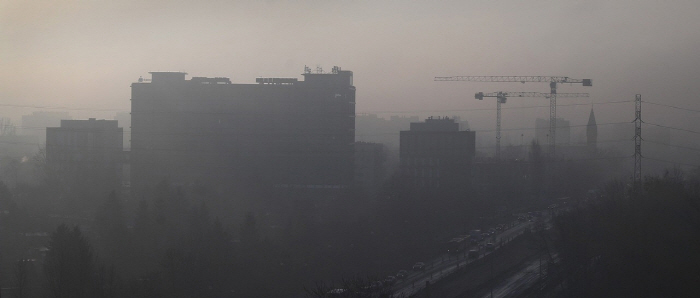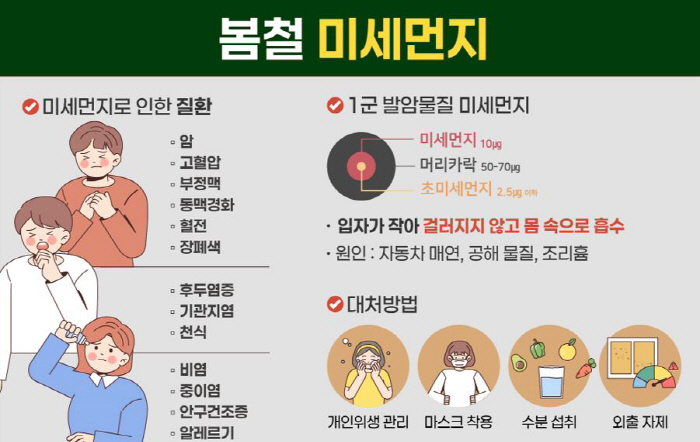How to protect your health from cloudy sky fine dust
Apr 01, 2025
|
◇Danger of fine dust and ultrafine dust
Fine dust (PM10) has a particle size of 10 μm or less and can cause inflammation in the alveoli, resulting in a decrease in lung function. Ultra-fine dust (PM2.5) is a fine particle of 2.5㎛ or less, absorbed directly into the body without passing through the nose and bronchial tubes, causing an inflammatory reaction, and can also affect cardiovascular and brain health.
"Heavy metals such as iron and cadmium in fine dust can penetrate the lungs through the respiratory tract and cause cardiovascular disease," said Cho Eun-young, a specialist in respiratory medicine at H Plus Yangji Hospital"You should pay more attention to health care on days when fine dust levels are high."," he stressed.
◇ Diseases caused by fine dust
Fine dust is an air pollutant generated by automobile exhaust gas and industrial processes. It accumulates in the body and can cause respiratory diseases such as rhinitis, bronchitis, asthma, as well as various diseases such as high blood pressure, arrhythmia, arteriosclerosis, and dry eyes. In particular, ultrafine dust is also generated from cooking fumes generated during food cooking, and according to research, the concentration of ultrafine dust in cooking fumes can be 4 to 10 times higher than on the side of the road. In addition, when the concentration of fine dust increases by 10㎍/㎥, patients such as acute bronchitis 23.1%, asthma 10.2%, and chronic bronchitis 6.9% increase.
◇How to protect your health from fine dust
It is important to reduce exposure to minimize fine dust damage. In particular, pregnant women, infants, children, the elderly, and chronically ill should refrain from going out, and wear a health mask of KF80 or higher when going out. After returning home, it is recommended to shake off clothes and shoes, wash hands and faces thoroughly, and remove fine dust through brushing and gargling. It is also necessary to lower the concentration of fine dust indoors by ventilation for 5 to 10 minutes at 1-hour intervals, and to check the filter in advance when using the air purifier. It is good to keep the humidity between 40 and 60% and the temperature between 20 and 22 degrees so that the room is not dry.
Underlying patients have a higher risk than the general population, so they should be more careful. When you go out, you should carry emergency medicines such as daily pills and symptom relief pills. In addition, it is helpful to develop immunity through healthy lifestyles such as a nutritious diet, steady exercise, and stress management.
"If the mucous membrane of the throat is dry, fine dust easily sticks, so it is better to drink more than eight cups of water a day," said Cho Eun-young, a specialist. "Breathing through the nose plays a role in filtering dust in the air, which is more beneficial to health than breathing through the mouth."
|
|
This article was translated by Naver AI translator.
















